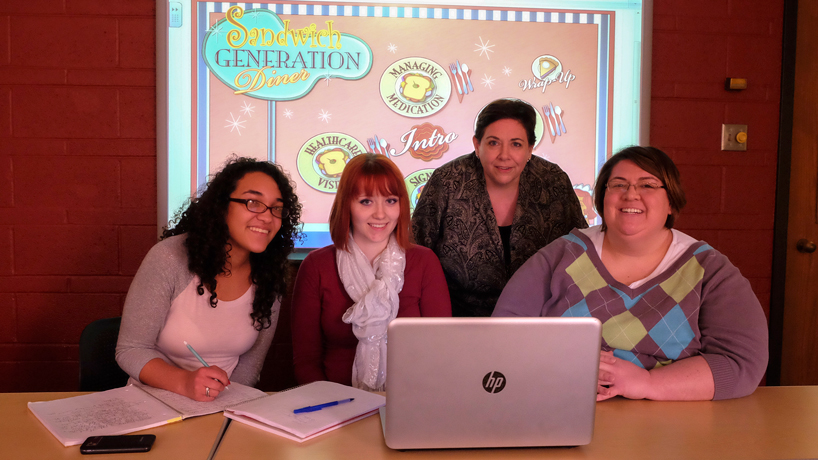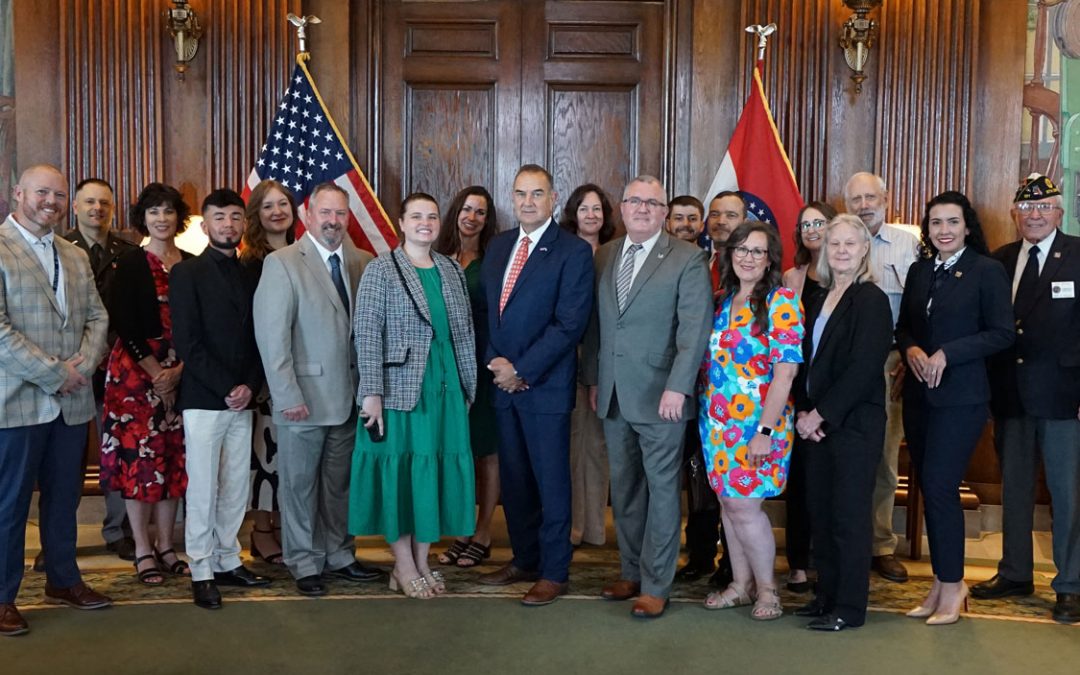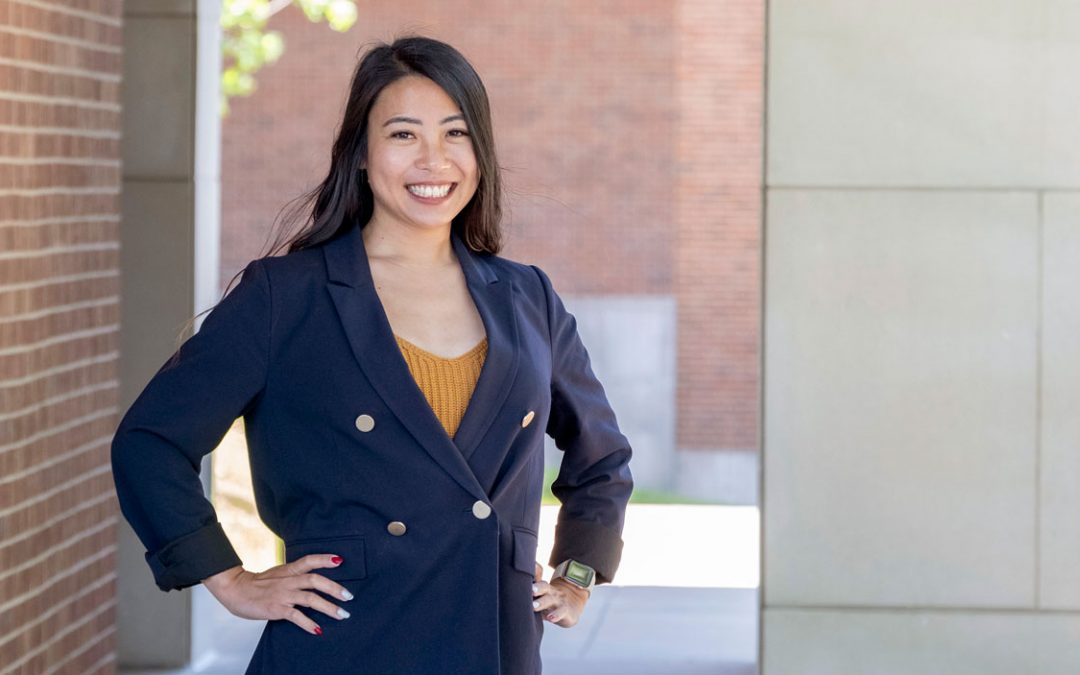
Pictured from left: Undergraduate psychology majors Janee Artis and Brittany Schaeffer, UMSL psychology professor Ann Steffen and graduate psychology student Megan MacDougall have created an online resource called the Sandwich Generation Diner to help those caring for aging family members. (Photo by August Jennewein)
As the baby boomer generation continues to age past retirement, many of their female children are embodying what is known as the “sandwich generation” – caring for aging parents while also raising children.
For those in the sandwich generation, managing medications and doctor’s appointments while addressing family relationship issues can be challenging in addition to other daily responsibilities.
Ann Steffen, associate professor of psychology and gerontology at the University of Missouri–St. Louis, and her students have created an online resource to help caregivers. The project, funded by a more than $245,000 grant from Express Scripts, Inc., is called the Sandwich Generation Diner.
“The goal of the online resource is to increase reported knowledge and use of effective medication management strategies by women caring for an older relative,” Steffen said. “By doing so, we decrease caregiving hassles and rates of adverse medication-related events for care recipients.”
Undergraduate psychology majors Janee Artis and Brittany Schaeffer, together with graduate psychology student Megan MacDougall, have been working with Steffen on the project, which is open to female caregivers who fit the project aims.
Artis, Schaeffer and MacDougall recruit potential participants who may benefit from the online resources. Once invited into the study, they are provided with several video vignettes using actors to depict real-life situations and challenges encountered by caregivers. In addition, caregivers have access to other information through the site such as tips from experts and research material.
The caregivers in the study participate in monthly online assessments to track reported medication and refill patterns, strategies used for medication management, perceptions of medication hassles and adverse events for the care recipient.
“I didn’t realize the amount of commitment that some of these caregivers actually have,” said Schaeffer. “You really understand who they are and what they are going through. They sacrifice so much – they don’t have time for themselves. I think what they are doing is so honorable, and I think their efforts validate what we are doing to alleviate some of that stress.”
Artis said she enjoys the opportunity to get to know the caregivers and talk to them about their experiences.
“It’s great to be able to put a face with the numbers you hear regarding how many people are caring for the aging population, and really understanding what they are going through. That’s probably been the most impactful to me, just hearing these individuals’ stories.”
MacDougall said she sees the project as evolving and reaching a broader audience of sandwich generation caregivers.
“What I’ve learned is that there really is a need for this,” she said. “What we are focused on is relieving the burden that is experienced by the caregiver. Giving them support and letting them know they are not alone is one of the most important things we can do.”
For information about the project, watch this short video or visit the website.















